421 Sqn Bellicum Cecinere ("Red Indian")
History of the Squadron during World War II (Aircraft: Spitfire VA, VB, IX, IXB, XVI)
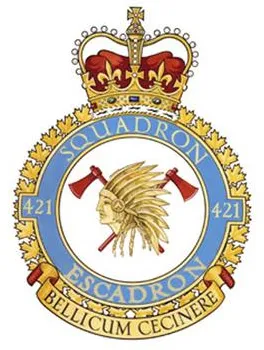
The squadron was the 20th squadron and the last of the eight Fighter squadrons formed overseas by the RCAF in WWII. It was initiated at Digby, Lincolnshire, England  on April 9, 1942, It flew on defensive operations over Britain, as well as offensive operations over Europe, before D-Day. After the invasion, the squadron moved to France on 16 June 1944 and thereafter provided air and ground support to the Allied ground forces as they moved through France, the Low Countries and Germany. The squadron was disbanded at Utersen, Germany
on April 9, 1942, It flew on defensive operations over Britain, as well as offensive operations over Europe, before D-Day. After the invasion, the squadron moved to France on 16 June 1944 and thereafter provided air and ground support to the Allied ground forces as they moved through France, the Low Countries and Germany. The squadron was disbanded at Utersen, Germany  on July 10, 1945.
on July 10, 1945.
In the course of its operations, the squadron flew some 10,900 sorties and claimed 79 enemy aircraft destroyed, 2 probables and 27 damaged, for the loss of 34 aircraft and 33 pilots, of whom 4 were killed, 25 missing and 4 injured. The squadron had 2 aces, Squadron Leader R.W McNair, DFC and 2 Bars, and Flight Lieutenant P.G. Johnson. The squadron members were awarded 1 second Bar to DFC, 2 Bars to DFC and 5 DFCs. Battle Honours were: Defence of Britain 1942-43, Fortress Europe 1942-44, France and Germany 1944-45, Normandy 1944, Arnhem, RhineWikipedia, Kostenuk and Griffin
Maps for Movements of 421 Squadron 1942-45
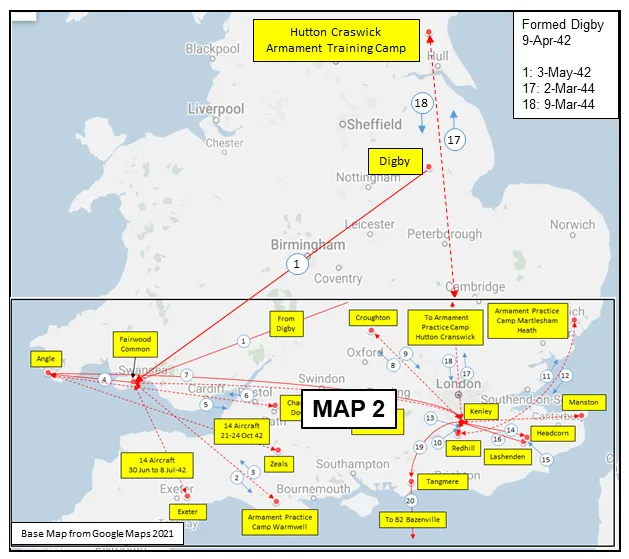
MAP 1: 421 Squadron Movements in England 1942-44 (right-click on image to display enlarged in new tab)
|
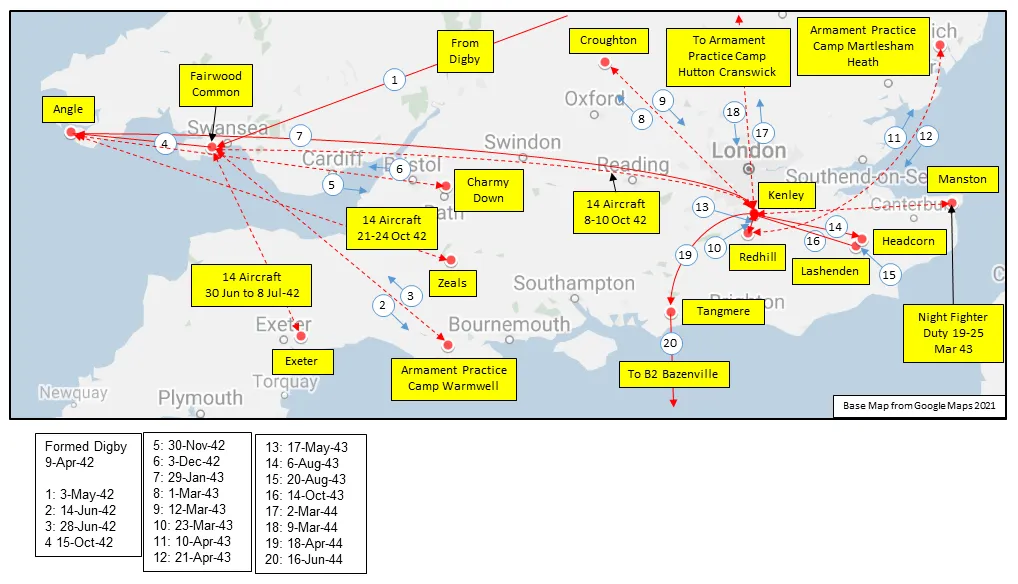
MAP 2: 421 Squadron Movements, detail of Map 1
|
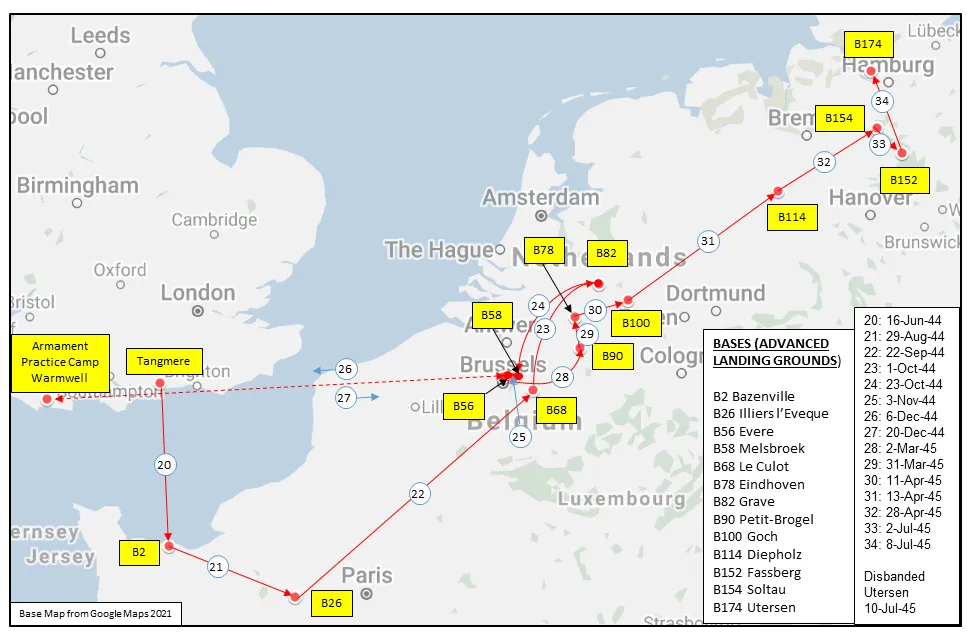
421 Squadron History Summary 1942-45
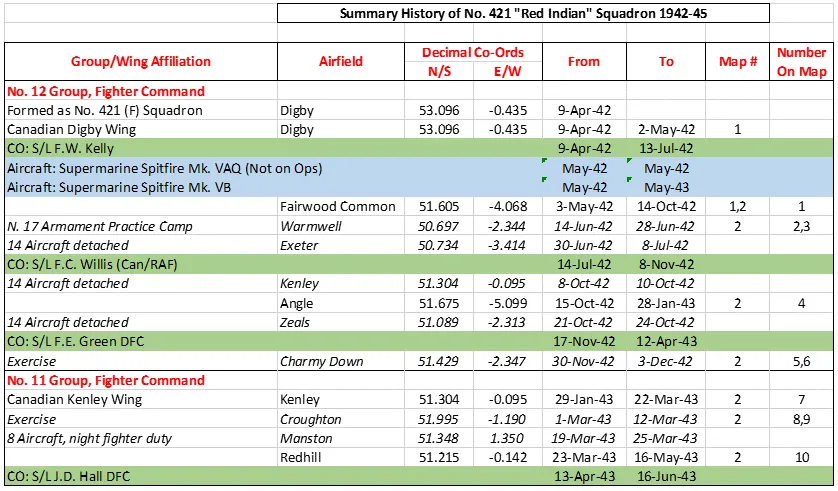
421Squadron History Summary 1942-45 Page 2
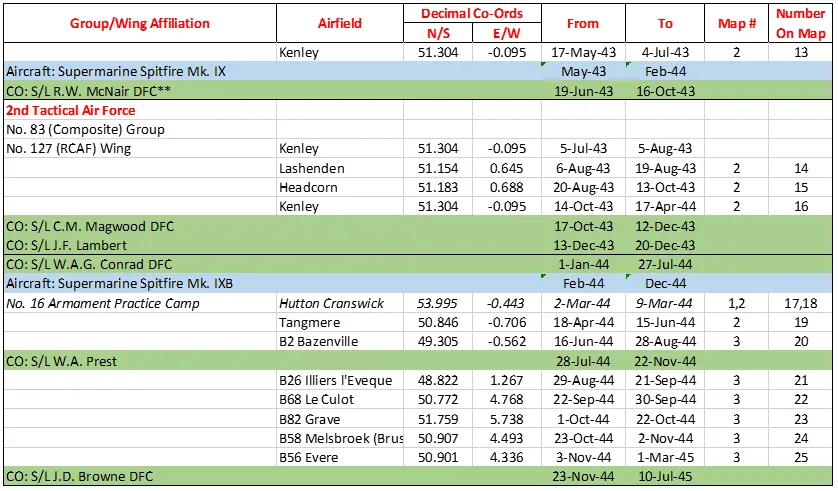
421 Squadron History Summary 1942-45 Page 3

History of the Squadron Post-WWII (Aircraft: Vampire III, 5, Meteor T7, Sabre 2, 5, 6, Starfighter)
The squadron was re-formed as a Fighter unit at Chatham, New Brunswick  on 15 September 1949, flying de Havilland Vampire III aircraft and, during 1951, was stationed in the United Kingdom for operational training with the Royal Air Force, flying Gloster Meteor T Mk. 7 training aircraft. In December 1951 it was re-equipped with Sabre aircraft and in October 1952 joined No. 2 (Fighter) Wing at Grostenquin, France
on 15 September 1949, flying de Havilland Vampire III aircraft and, during 1951, was stationed in the United Kingdom for operational training with the Royal Air Force, flying Gloster Meteor T Mk. 7 training aircraft. In December 1951 it was re-equipped with Sabre aircraft and in October 1952 joined No. 2 (Fighter) Wing at Grostenquin, France  . Selected as one of eight Sabre squadrons in No. 1 Air Division Europe to be re-equipped with CF-104 Starfighter aircraft for a nuclear strike role, the squadron was deactivated on 1 August 1963 and was reactivated as Strike Attack on 21 December. When No. 2 Wing was disbanded in February 1964, the squadron joined No. 4 Wing at Baden-Soellingen, Germany
. Selected as one of eight Sabre squadrons in No. 1 Air Division Europe to be re-equipped with CF-104 Starfighter aircraft for a nuclear strike role, the squadron was deactivated on 1 August 1963 and was reactivated as Strike Attack on 21 December. When No. 2 Wing was disbanded in February 1964, the squadron joined No. 4 Wing at Baden-Soellingen, Germany  . On 1 February 1968 the squadron was integrated into the Canadian Armed Forces. It was redesignated '421 Tactical Fighter Squadron' on 1 January 1972. The squadron was finally disbanded 31 August 1992, as a result of the ending of the Cold War.
. On 1 February 1968 the squadron was integrated into the Canadian Armed Forces. It was redesignated '421 Tactical Fighter Squadron' on 1 January 1972. The squadron was finally disbanded 31 August 1992, as a result of the ending of the Cold War.

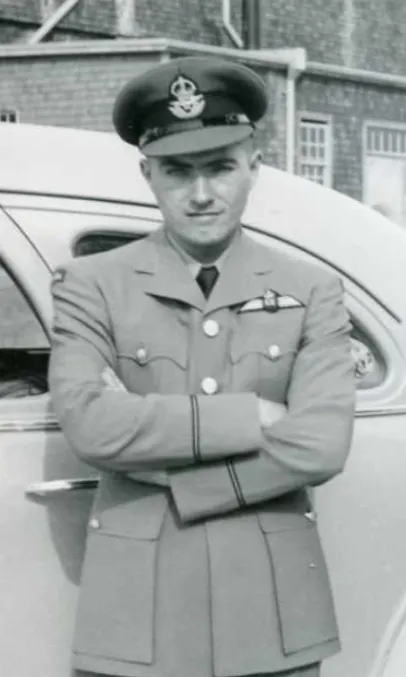

 Canadian Virtual War Memorial
Canadian Virtual War Memorial